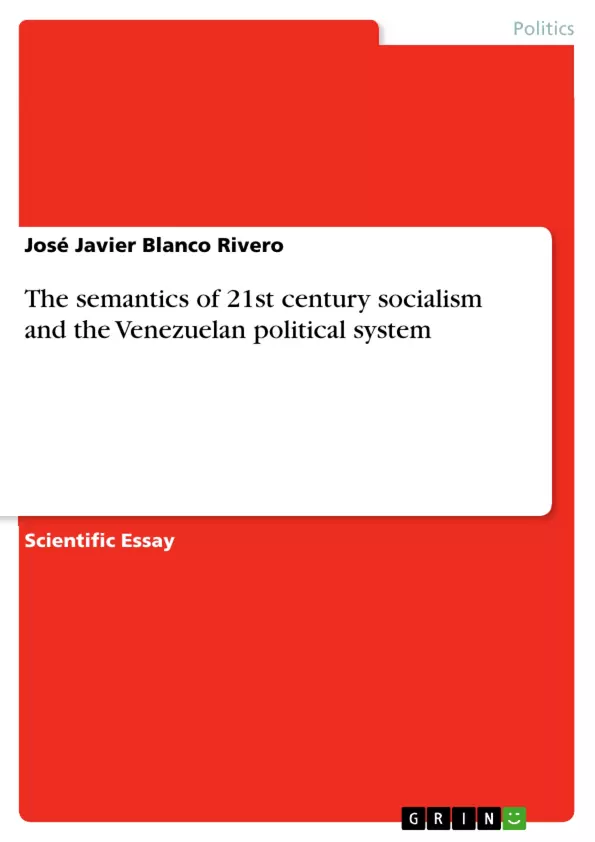The contemporary Venezuelan political system is observed through Luhmann’s social theory as analytical framework, following the systemic distinction between semantics and social structure. Semantically, the discourse of twenty-first century socialism stands out, promising not only better opportunities for the poor but also a new world order. Semantics of this kind works as a natural self-description identifying people with their leader. Tautological self-descriptions are typical of authoritarian and totalitarian regimes. From a socio-structural standpoint the Venezuelan political system is characterised by the inflation of power and money, causing the state to grow out of control as well as public expenditure. As oil prices increased the Bolivarian revolution could afford ambitious national and continental projects, but as the energy market became flooded with cheaper oil, the scarcity of dollars is choking not only Venezuela’s economy but the government’s legitimacy as well.
Inhaltsverzeichnis (Table of Contents)
- A brief introduction to the theory of social systems developed by Niklas Luhmann
- Twenty-first century socialism as a natural self-description
- The Venezuelan mega-state
- Concluding remarks
Zielsetzung und Themenschwerpunkte (Objectives and Key Themes)
This paper aims to analyze the contemporary Venezuelan political system through the lens of Niklas Luhmann's social theory. It focuses on the distinction between semantics and social structure, examining how the discourse of twenty-first century socialism operates within this framework.
- The role of semantics in shaping political discourse
- The concept of "natural self-description" as a political strategy
- The influence of power and money in the Venezuelan political system
- The impact of inflation on political stability
- The limitations and challenges of twenty-first century socialism
Zusammenfassung der Kapitel (Chapter Summaries)
The paper begins by providing a brief overview of Niklas Luhmann's system theory, highlighting the key concepts relevant to the analysis of the Venezuelan political system. The second section focuses on the semantics of twenty-first century socialism, examining how it functions as a natural self-description that seeks to unify the masses with their leader. It discusses the potential dangers of this strategy, arguing that it can lead to political instability. The third section explores the socio-structural processes associated with the inflation of power and money, illustrating how this phenomenon plays out in Venezuela's political context. It concludes by highlighting the potential threat posed by this inflation to democratic institutions.
Schlüsselwörter (Keywords)
The main keywords and focus topics of the text include: twenty-first century socialism, semantics, social structure, natural self-description, inflation, power, money, Venezuelan political system, Luhmann's system theory, democratic politics.
Frequently Asked Questions
How is the Venezuelan political system analyzed in this paper?
The paper uses Niklas Luhmann’s social systems theory as an analytical framework, distinguishing between semantics and social structure.
What is meant by "Twenty-first century socialism" in semantics?
It functions as a "natural self-description" that identifies the people with their leader, often typical of authoritarian regimes.
How did oil prices affect the Bolivarian revolution?
High oil prices allowed for ambitious national projects, but falling prices led to a scarcity of dollars, choking the economy and government legitimacy.
What are the socio-structural characteristics of the Venezuelan state?
It is characterized by an "inflation of power and money," leading to an out-of-control mega-state and excessive public expenditure.
What is the risk of tautological self-descriptions?
According to the paper, these can lead to political instability and are hallmarks of totalitarian tendencies within a system.
- Citar trabajo
- Dr. José Javier Blanco Rivero (Autor), 2014, The semantics of 21st century socialism and the Venezuelan political system, Múnich, GRIN Verlag, https://www.grin.com/document/323977



